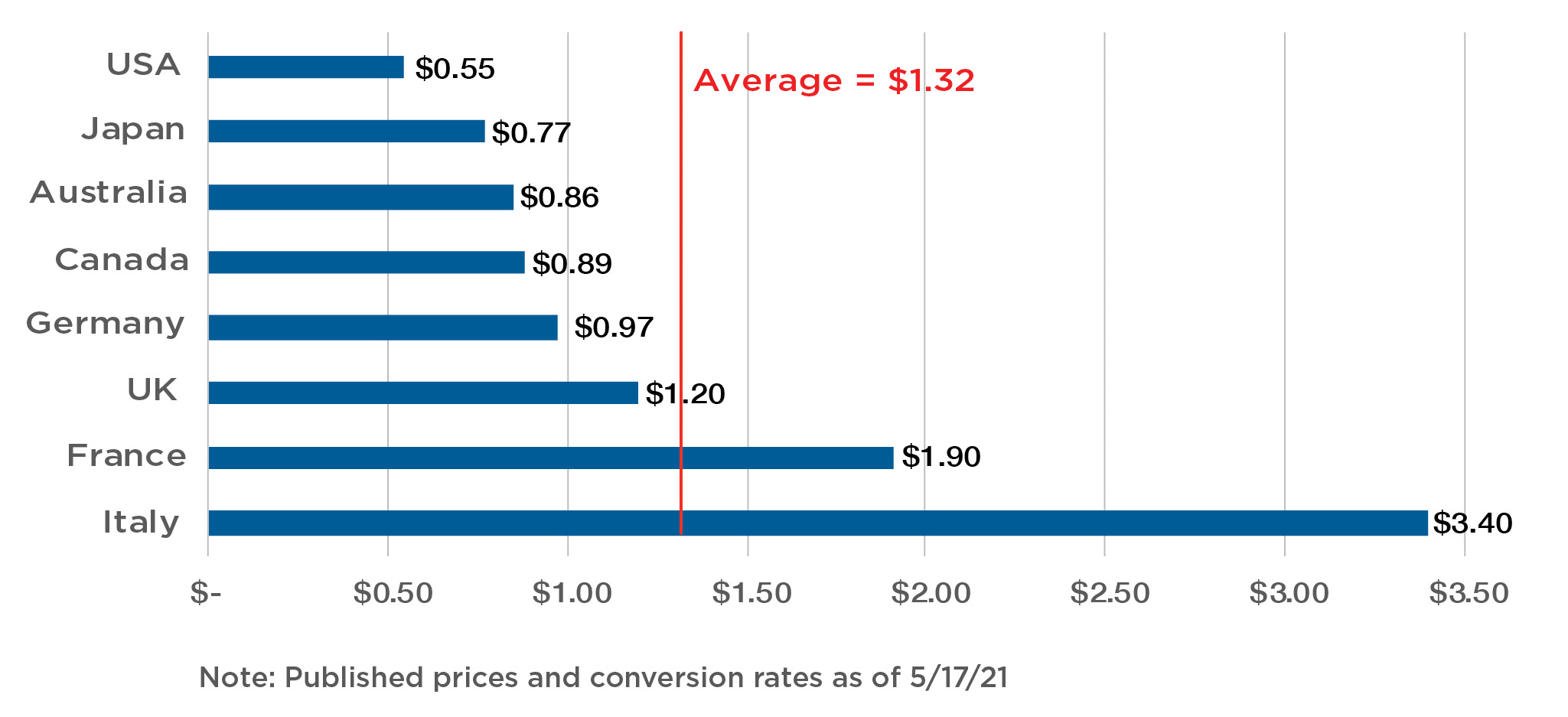US Postal Service Files Notice to Raise Rates, Including 6.9% Increase for Market Dominant Mail
As part of “Delivering for America,” its 10-year plan to achieve financial sustainability and service excellence, the United States Postal Service (USPS) filed notice with the Postal Regulatory Commission (PRC) requesting price changes to take effect Aug. 29, 2021 that are in accordance with approvals provided by the PRC last year.
The proposed price changes would raise overall Market Dominant product and service prices by approximately 6.9 percent. First-Class Mail prices would increase by 6.8 percent to offset declining revenue due to First-Class Mail volume declines. In the past 10 years, mail volume has declined by 46 billion pieces, or 28 percent, and is continuing to decline. Over the same period, First-Class Mail volume has dropped 32 percent, and single piece First-Class Mail volume — including letters bearing postage stamps — has declined 47 percent.
“For the past 14 years, the Postal Service has had limited pricing authority to respond to changing market realities,” said Postmaster General and CEO Louis DeJoy. “As part of our 10-year plan to achieve financial sustainability and service excellence, the Postal Service and the Board of Governors are committed to judiciously implementing a rational pricing approach that helps enable us to remain viable and competitive and offer reliable postal services that are among the most affordable in the world.”
The proposed Mailing Services price changes include:
Under the current pricing model and the proposed rate change, the Postal Service still has some of the lowest letter-mail postage rates in the industrialized world and continues to offer a great value in shipping.
SINGLE PIECE LETTER-MAIL POSTAGE RATES, INTERNATIONAL

The Postal Accountability and Enhancement Act (PAEA) of 2006 capped price increases for mailing services at the Consumer Price Index (CPI). The PAEA also required the PRC to evaluate the price cap system 10 years after the date of enactment and to modify or replace the system if it was not meeting the objectives of the law. The PRC recognized the price cap was a barrier to the Postal Service’s financial sustainability in December 2017, resulting in cumulative lost gross revenue opportunity of $55 billion. In May, the Postal Service reported a net loss of $82 million for the second quarter of 2021.
In November 2020, the PRC announced new rules on market-dominant prices, allowing above-CPI price increases on the basis of certain factors and allowing the Postal Service more flexibility in establishing prices for mailing services.
“November’s PRC ruling allows the Postal Service higher rate authority in establishing prices for mailing services,” said Chief Financial Officer and Executive Vice President Joseph Corbett. “Aligning our prices for market-dominant products will allow us to grow revenue and help achieve financial sustainability to fulfill our universal service mission.”
With full implementation, the Postal Service’s 10-year plan is designed to reverse a projected $160 billion in operating losses over the next 10 years. The Plan’s growth and efficiency initiatives, including the proposed pricing changes, together with necessary legislation, should allow the Postal Service to make investments totaling approximately $40 billion over the next 10 years to modernize and improve our infrastructure to become more efficient and service responsive.
In 2020, the Postal Service delivered approximately 129.2 billion pieces of mail and packages to customers located in every state and territory, county, city, town and rural area in the nation.
The complete Postal Service price filings with prices for all products can be found on the PRC site at https://www.prc.gov/dockets/active/R. A fact sheet on the Postal Service’s rate change request is available here: https://about.usps.com/what/strategic-plans/delivering-for-america/#prc
The Postal Service generally receives no tax dollars for operating expenses and relies on the sale of postage, products and services to fund its operations.
The preceding press release was provided by a company unaffiliated with Printing Impressions. The views expressed within do not directly reflect the thoughts or opinions of the staff of Printing Impressions.













